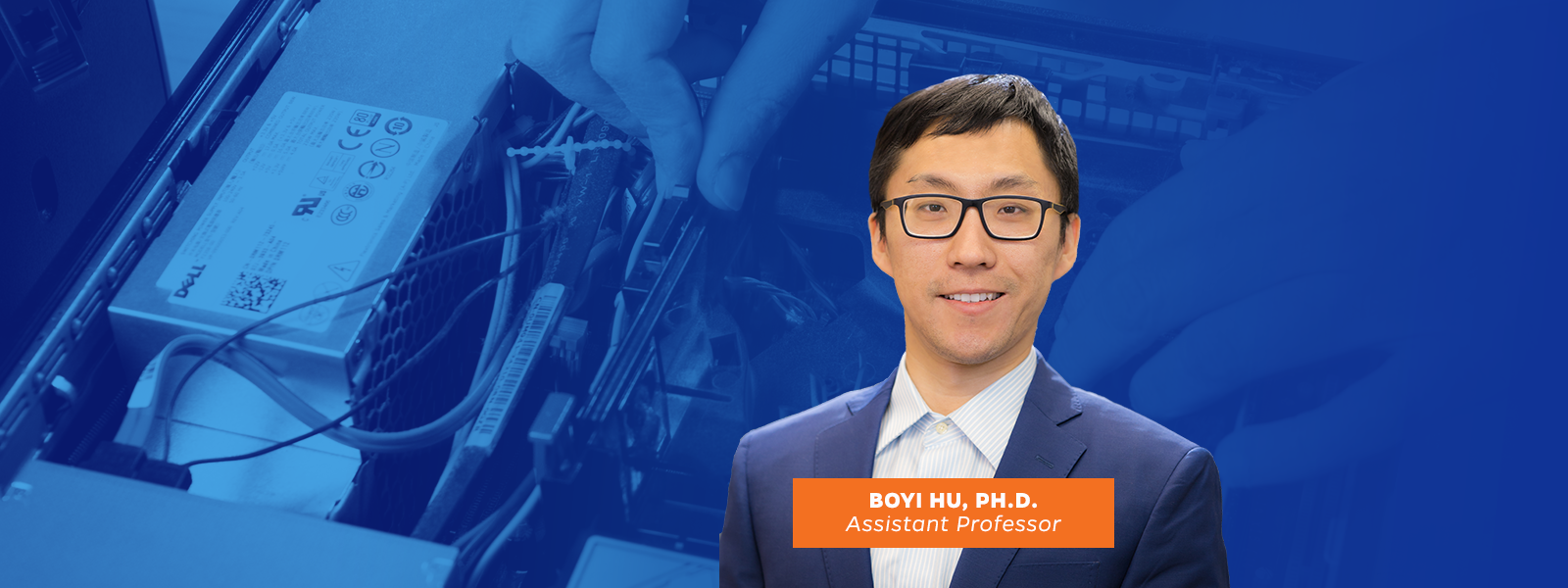Boyi Hu, Ph.D., an assistant professor for the Department of Industrial & Systems Engineering (ISE) at the University of Florida (UF), has received funding from the National Science Foundation in support of his research in on human-robot collaboration in the remanufacturing industry.
Remanufacturing is an industrial process that takes an old or used product and returns it to a “like-new” performance level and quality. Remanufacturing differs from recycling in that the remanufacturing process involves preserving the entire form of a product, whereas recycling breaks the product down. Common products that are remanufactured are aircraft or automotive parts, electronic equipment and medical equipment.
There is an increased interest in end-of-use product recovery, or remanufacturing, including environmental regulations, consumer interest in green products and price reductions associated with using remanufactured parts as opposed to brand new equipment. However, despite the desire to remanufacture, there are significant barriers to remanufacturing system design creating challenges for companies.
Dr. Hu’s research focuses on creating an integrated framework that utilizes the capabilities of both humans and robots in a safe, complementary and interactive manner. The framework will elucidate strengths of intelligence and physical capabilities in both humans and robots to compensate for weaknesses. It will advance the disassembly sequence planning and product design process, by considering the uncertainty of involving both human and collaborative robots. In addition, the research team will investigate human behavior and response factors in robot-assisted environments.
This collaborative research effort will advance the understanding of how humans and robots interact with one another, including how they distribute tasks and cooperate in a complementary manner.
Dr. Hu and the team hope that the framework will ultimately increase productivity while ensuring worker safety onsite.
“It is well accepted that robotics and automation could boost system productivity. The unique environment of remanufacturing plants creates a more complex socio-technical system in which fluent human-robot interaction is challenging to achieve and maintain. For instance, given the large payloads of those robots, the likelihood of more severe collision consequences makes safe operation even more critical. More importantly, unlike those service robot implementation scenarios, humans are not being served or entertained. In occupational settings, human-robot interaction occurs in contexts that humans also have tasks to fulfill which are heavily affected by the physical and psychological interactions with robot agents. In this regard, the work we are going to do is groundbreaking,” said Dr. Hu.
Other expected benefits from this research include improved quality of life for remanufacturing workers, increased recycling and reduced waste and the creation of new jobs and reduced dependency on foreign materials.
Dr. Hu is a co-principal investigator of an interdisciplinary research team including Sara Behdad, Ph.D., associate professor of environmental engineering sciences at UF, Gulcan Onel, Ph.D., from the UF Food and Resource Economics Department, and Minghui Zheng, Ph.D., and Xiao Liang, Ph.D. from the University of Buffalo. Together, they are developing ways to incorporate collaborative robots into the remanufacturing process.
